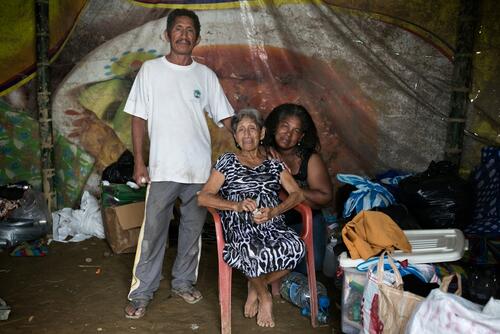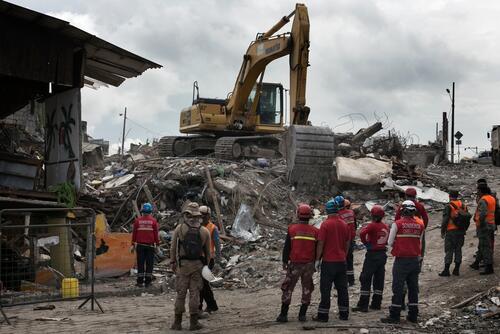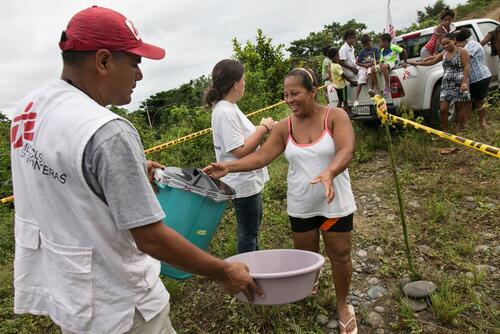“The earth still keeps moving and shaking”
Silvana Saltos, 26 years old, San Francisco del Cabo Shelter, Muisne
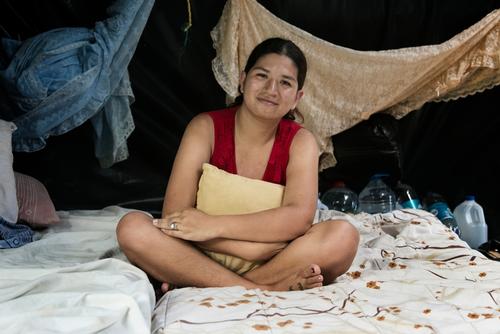
“I'm nearly three months pregnant. I almost lost my baby on the day of the earthquake because it took a lot of effort to carry my two young children when I was fleeing from the house.
I was taken into hospital in the city of Atacame because I've felt a lot of pain since that day and because I still can't digest everything I eat. They were able to do some tests there to monitor my pregnancy, but since I've been at the refuge in Muisne I've had hardly any check-ups. When the doctors came they checked me over and told me that I have a tricky pregnancy and that I will have to have regular check-ups.
My mum is also here with my children and my husband, and she suffers from high blood pressure. Ever since the earthquake, her blood pressure has been really high and it's not even gone down with medication. When my children feel each new tremor, they become pale and frightened.
We feel a bit uncomfortable in the refuge because there are seven of us and we sleep on two mattresses. We only got lights two days ago; before that we were using candles. What's more, the rain drenched us and the few possessions we have left.
We don't know how long we're going to stay here because it might still be dangerous to return to the island. The houses that have been left standing may well collapse. Sometimes, people say that a tsunami might happen, then they say it won’t. But in the meantime, the earth still keeps moving and shaking.”
“We are hoping to return to our homes”
Glass Moreno, 50 years old, San Francisco del Cabo Shelter, Muisne
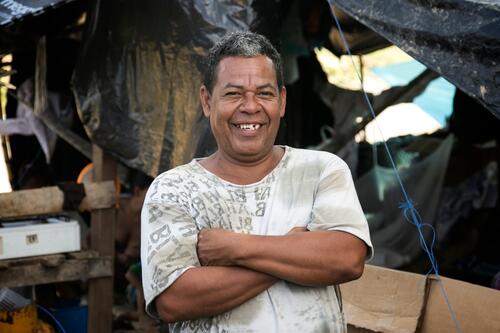
“I was in my house, on the second floor, when the earthquake struck. I heard all the neighbours starting to shout and they came running out of their homes. Then I quickly went downstairs to get my granddaughter but while I was trying to take her with me, I broke my leg.
Thankfully, nothing happened to my house but the house next door is badly damaged and there is a danger that it could collapse on top of mine. That’s why I can't go back yet so I came to the refuge at San Francisco del Cabo. Right now, there are about 200 of us in total living here, both adults and children.
In Muisne, most people work in fishing. As I'm older and I can't go out fishing, I used to work at home making a local fish dish as a way of earning a living on the island. But now I don't have a source of income. Even the fishermen aren't going out to do their work. We are hoping to find out what will happen and to go back to our homes.
If the aftershocks continue, we'll also have to prepare ourselves and understand that nature is always going to be like that. For now, help is here, but we ourselves also have to go out and make our own efforts to find food. We have to survive.”
“Faced with the ravages of nature, nowhere is safe”
Nancy Muñoz, 35 years old, Nuevo Milenio Shelter, Chamanga
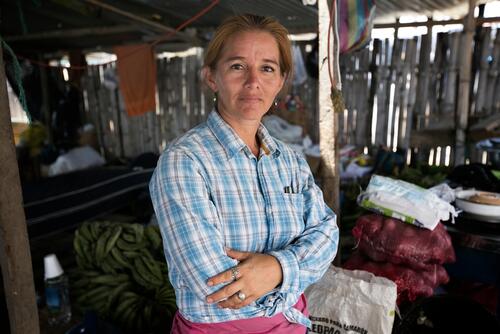
“I had a house in the lower end of Chamanga and, at the time, I thought it was one of the best in the community. I was sure that nothing could damage it. But faced with the ravages of nature, nowhere is safe and no one place is the best.
When the earthquake hit, I was helping my mother in her shop when suddenly everything started to move. We wanted to run outside but we realised that one of my nieces, who is only three years old, was nowhere to be seen. We searched for her and found her watching cartoons in one of the rooms. Thankfully, I managed to rescue her before one of the walls of the house collapsed on top of her.
Because of the emergency, all the neighbours walked up to the higher parts of Chamanga. When we first arrived at the shelter there were 120 families, including children, adults, persons with disabilities and older persons. But many then left with family members or friends, so we are among the 95 families left. The children are very restless here. They want to return to their homes. A little three-year-old girl asked me one day, “Why did this happen? Why was my house damaged? I want to go to heaven.” These thoughts bring tears to our eyes, and I think we are in need of a lot of mental healthcare here.
Chamanga is very quiet and safe and I always thought that we were far from any danger because there are no volcanoes here, unlike in other mountainous provinces. We have never experienced a situation like this. This area is an inlet and we have lots of species of animals and birds. It is a place that is rich in nature. But since the earthquake, some 80 per cent of the town has been devastated.
As well as being my home, my house was my source of income. I rented rooms and cellars to support my family and educate my two children, who are studying in Santo Domingo and at a school in Ciudad del Carmen. That’s how I used to pay for their food and rent. How am I going to tell my children that they won’t be able to study this year?
Many of us have been left without jobs and we have still not been told anything official about what will happen to our homes and how we are going to revive our economy, and that fills us with despair. We will try to cope with the situation and we hope that we can rebuild our homes as soon as possible and live the way we once did.”



